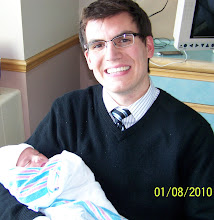I’ve been listening to quite a bit of commentary following Tim Hardaway’s recent comments that he hates gay people. For those of you that haven’t heard, Hardaway was asked on a Miami area sports radio show what his thoughts were about having a teammate that is gay. He made some remarks that seemed a bit bigoted and when asked if he understood those were homophobic, bigoted remarks, he responded by saying “I hate gay people.” Much of the commentary I’ve heard on a local radio station has focused on how the Bible condemns homosexuality and even though the way Hardaway expressed his view is questionable, he is right in saying that homosexuality is wrong. Their basis for why homosexuality is wrong is that the Bible condemns it. Well, I want to argue that, in this situation, what the Bible has to say about homosexuality doesn’t matter.
First, it’s not at all clear that Hardaway based his comments on the Bible. In fact, I think it’s clear that his comments were not based on the Bible. So the biblical passages that refer to homosexuality don’t matter in this context because they were never appealed to in the first place.
Some may respond by saying that even if Hardaway didn’t appeal to the Bible in his comments, he could have made such an appeal. In fact, some have even said that he should have made an appeal to the relevant Biblical passages. This leads naturally to my second point. Even if Hardaway (or anyone for that matter) does have a case that the Bible condemns homosexuality he should not have appealed to that case. Why? Because what the Bible says about homosexuality is completely irrelevant when discussing the issue with people that don’t believe in the Bible. I understand that some may be bothered by this statement so let me explain a bit further.
When making a case for or against some issue, it is important to make that case with premises that all parties find agreeable. Please allow me to illustrate. Imagine you and a friend are playing in a field behind both your houses. You see a tree and decide to climb that tree. Tree climbing is a hobby you developed with your father and would now like to climb that tree. Your friend tells you, “Don’t climb that tree!” to which you ask “Why?” Now if your friend responds by saying “Well, my daddy said to not climb this tree, so you shouldn’t climb the tree” do you have any obligation to comply? Of course not. What reason do you have to comply with the commands given by an authority (her father) that you don’t recognize? Now if your instead friend replied by saying, “All the other children that have climbed this tree have fallen and hurt themselves very badly” then it might make sense to not climb that tree. Does the situation change if instead of a friend in the field with you it is a sibling and your sibling said “Don’t climb that tree because Dad said not to”? Yes that does change things and in a very important way. Why? Because now both people recognize the same person as a common authority.
So how does that apply to debating whether or not homosexuality is a good thing to practice? Well, if you say, “Don’t engage in homosexual activities because the Bible says it is a sin” but the person doesn’t believe in the Bible, then you are no different than the friend that expects you to obey her dad. Now if both parties agree that the Bible is the inspired Word of God and a guide to daily living, then it is perfectly acceptable to appeal to the Bible as your authority on the subject.
Does this mean that the Christian should remain silent about the potential or actual harms of homosexuality? Of course not. There are two things open for the Christian to do. One is to engage the other person about why he or she should accept the Bible as the standard for daily living. This would be like the friend in the example going on to say, “Well, my dad is a fireman and the last time someone got hurt climbing this tree all the firemen decided it was too dangerous for anyone to climb.” This would be an attempt to show why, in this case, you should accept the authority of her dad. The second thing you can do is make your case against homosexuality without referring to the Bible. Why do you think the Bible seems to prohibit homosexuality? (I use ‘seems’ because not everyone reading this will agree it does, but even those people would agree with what follows.) Well, certain behaviors prevent people from living the best life possible. That is true whether or not you believe in God or the Bible. If you show how those behaviors prevent the best life without appealing to the Bible, then whomever you are talking with cannot just say, “Well, I don’t believe in the Bible and so I have no reason to obey its commands.”
I do think such a case can be made. If you’re interested in some books that make a case against homosexuality (among other things) without appealing to Scripture, let me know. There are also some great books that will help you know why people should believe in the Bible’s trustworthiness and reliability. Those types of books may help you with your ability to convince those that don’t trust the Bible that they should.

